Illustration by Jill Calder
On the first anniversary of the American novelist's death, a new short story by Julian Barnes.
--
'I thought that went very well," Jane said, patting her handbag as the train doors closed with a pneumatic thump. Their carriage was nearly empty, its air warm and stale.
Alice knew to treat the remark as a question seeking reassurance. "You were certainly on good form."
"Oh, I had a nice room for a change. It always helps."
"They liked that story of yours about Graham Greene."
"They usually do," Jane replied with a slight air of complacency.
"I've always meant to ask you, is it true?"
"You know, I never worry about that any more. It fills a slot."
When had they first met? Neither could quite remember. It must have been nearly forty years ago, during that time of interchangeable parties: the same white wine, the same hysterical noise level, the same publishers' speeches. Perhaps it had been at a PEN do, or when they'd been shortlisted for the same literary prize. Or maybe during that long, drunken summer when Alice had been sleeping with Jane's agent, for reasons she could no longer recall or, even at the time, justify.
"In a way, it's a relief we're not famous."
"Is it?" Jane looked puzzled, and a little dismayed, as if she thought they were.
"Well, I imagine we'd have readers coming to see us time and again. They'd expect some new anecdotes. I don't think either of us has told a new story in years."
"Actually, we do have people coming to see us again and again. Just fewer than . . . if we were famous. Anyway, I think they like hearing the same stories. When we're on stage we're not literature, we're sitcom. You have to have catchphrases."
"Like your Graham Greene story."
"I think of that as a bit more than a . . . catchphrase, Alice."
"Don't prickle, dear. It doesn't suit." Alice couldn't help noticing the sheen of sweat on her friend's face. All from the effort of getting from taxi to platform, then platform to train. And why did women carrying rather more poundage than was wise think floral prints were the answer? Bravado rarely worked with clothes, in Alice's opinion – at least, after a certain age.
When they had become friends, both were freshly married and freshly published. They had watched over each other's children, sympathised through divorces, recommended each other's books as Christmas reading. Each privately liked the other's work a little less than they said, but then, they also liked everyone else's work a little less than they said, so hypocrisy didn't come into it. Jane was embarrassed when Alice referred to herself as an artist rather than a writer, and thought her books strove to appear more highbrow than they were; Alice found Jane's work rather formless, and at times bleatingly autobiographical. Each had had a little more success than they had anticipated, but less, looking back, than they thought they deserved. Mike Nichols had taken an option on Alice's Triple Sec, but eventually pulled out; some journeyman from telly had come in and made it crassly sexual. Not that Alice put it like this; she would say, with a faint smile, that the adaptation had "skimped on the book's withholdingness", a phrase some found baffling. Jane, for her part, had been second favourite for the Booker with The Primrose Path, had spent a fortune on a frock, rehearsed her speech with Alice, and then lost out to some fashionable Antipodean.
"Who did you hear it from, just out of interest?"
"What?"
"The Graham Greene story."
"Oh, that chap . . . you know, that chap who used to publish us both."
"Jim?"
"Yes, that's right."
"Jane, how can you possibly forget Jim's name?"
"Well, I just did." The train blasted through some village halt, too fast to catch the signboard. Why did Alice need to be so stern? She wasn't exactly spotless herself. "By the way, did you ever sleep with him?"
Alice frowned slightly. "You know, to be perfectly honest, I can't remember. Did you?"
"I can't either. But I suppose if you did, then I probably did as well."
"Doesn't that make me sound a bit of a tart?"
"I don't know. I thought it made me sound more of a tart." Jane laughed, to cover the uncertainty.
"Do you think it's good or bad – that fact that we can't remember?"
Jane felt back on stage, facing a question she was unprepared for. So she did what she would have done there, and referred the matter back to Alice: the team leader, head girl, moral authority.
"What do you think?"
"Good, definitely."
"Why?"
"Oh, I think it best to have a zen approach to that sort of thing."
Sometimes, Alice's poise could make her rather too oblique for ordinary mortals. "Are you saying it's Buddhist to forget who you slept with?"
"It could be."
"I thought Buddhism was about things coming round again in different lives?"
"Well that would explain why we slept with so many pigs."
They looked at one another companionably. They made a good team. When they were first asked to literary festivals, they soon realised it would be more fun to appear as a double act. Together they had played Hay and Edinburgh, Charleston and King's Lynn, Dartington and Dublin; even Adelaide and Toronto. They travelled together, saving their publishers the cost of minders. Onstage, they finished one other's sentences, covered up each other's gaffes, were satirically punitive with male interviewers who tried to patronise them, and urged signing queues to buy the other one's book. The British Council had sent them on a few trips until Jane, less than entirely sober, had made some unambassadorial remarks in Munich.
"What's the worst thing anyone's done to you?"
"Are we still talking bed?"
"Mmm."
"Jane, what a question."
"Well, we're bound to be asked it sooner or later. The way everything's going."
"I've never been raped, if that's what you're asking. At least," Alice went on reflectively, "not what the courts would call rape."
"So?"
When Alice didn't answer, Jane said: "I'll look at the landscape while you're thinking." She gazed, with vague benignity, at trees, fields, hedgerows, livestock. She had always been a town person, and her interest in the countryside was largely pragmatic: a flock of sheep only signified roast lamb.
"It's not something . . . obvious. But I'd say it was Simon."
"Simon as in the novelist or as in the publisher or as in Simon but you don't know him?"
"Simon the novelist. It was not long after I was divorced. He phoned up and suggested coming round. Said he'd bring a bottle of wine. Which he did. When it became pretty clear that he wasn't going to get what he'd come for, he corked up the rest of it and took the bottle home."
"What was it?"
"What do you mean?"
"Well, was it champagne?"
Alice thought for a moment. "It can't have been champagne because you can't get the cork back into the bottle. Do you mean was it French or Italian or white or red?"
Jane could tell from the tone that Alice was riled. "I don't know what I meant actually. That's bad."
"What's bad? Not remembering what you meant?"
"No, putting the cork back in the bottle. Really bad." She left an ex-actress's pause. "I suppose it might have been symbolic."
Alice giggled, and Jane could tell the moment had only been a hiccup.
Encouraged, she put on her sitcom voice. "Got to laugh after a bit, haven't you?"
"I suppose so," replied Alice. "It's either that or get religion."
Jane might have let the moment pass. But Alice's reference to Buddhism had given her courage, and besides, what are friends for? Even so, she looked out of the window to confess. "Actually, I've got it if you want to know. A little anyway."
"Really? Since when? Or rather, why?"
"A year or two. It sort of makes sense of things. Makes it all feel less . . . hopeless." Jane stroked her handbag, as if it too needed consolation.
Alice was surprised. In her world view, everything was hopeless, but you just had to get on with it. And there wasn't much point changing what you believed at this late stage of the game. She considered whether to answer seriously or lightly, and decided on the latter.
"As long as your god allows drinking and smoking and fornication."
"Oh, he's very keen on all of those."
"How about blasphemy? I always think that the key test. When it comes to a god."
"He's indifferent. He sort of rises above it."
"Then I approve."
"That's what he does. Approves."
"Makes a change. For a god, I mean. Mostly they disapprove."
"I don't think I'd want a god who disapproved. Get enough of that in life anyway. Mercy and forgiveness and understanding, that's what we need. Plus the notion of some overall plan."
"Did he find you or you find him, if that makes sense as a question?"
"Perfect sense," replied Jane. "I suppose you could say it was mutual."
"That sounds . . . comfy."
"Yes, most people don't think a god ought to be comfy."
"What's that line? Something like: 'God will forgive me, it's his job'?"
"Quite right too. I think we've overcomplicated God down the ages."
The sandwich trolley came past, and Jane ordered tea without milk. From her handbag she took a slice of lemon in a plastic box, and a miniature of cognac from the hotel minibar. She liked to play a little unacknowledged game with her publishers: the better her room, the less she pillaged. Last night she had slept well, so contented herself with only the cognac and whisky. But once, in Cheltenham, after a poor audience and a lumpy mattress, she was in such a rage that she'd taken everything: the alcohol, the peanuts, the chocolate, the bottle opener, even the ice tray.
The trolley clattered away. Alice found herself regretting the days of proper restaurant cars with silver service and white-jacketed waiters skilled at delivering vegetables with clasped fork and spoon while outside the landscape lurched. Life, she thought, was mostly about the gradual loss of pleasure. She and Jane had given up sex at about the same time. She was no longer interested in drink; Jane had stopped caring about food – or at least its quality. Alice gardened; Jane did crosswords, occasionally saving time by filling in answers which couldn't possibly be right.
Jane was glad Alice never rebuked her for taking a drink earlier than some. She felt a rush of affection for this poised, unmessy friend who always made sure that they caught their train.
"That was a nice young man who interviewed us," said Alice. "Properly respectful."
"He was to you. But he did that thing to me."
"What thing?"
"Didn't you notice?" Jane gave a sigh of self-pity. "When he mentioned all those books that my latest reminded him of. And you can't very well say you haven't read some of them or you'll look like an ignoramus. So you go along with it and then everyone assumes that's where you got your ideas from."
Alice thought this unduly paranoid. "They weren't thinking that, Jane. More likely they were writing him down as a show-off. And they loved it when he mentioned Moby-Dick and you put your head on one side and said: 'Is that the one with the whale?'"
"Yes."
"Jane, you're not telling me you haven't read Moby-Dick?"
"Did it look as if I hadn't?"
"No, not at all."
"Good. Well, I wasn't exactly lying. I saw the film. Gregory Peck. Was it good?"
"The film?"
"No, the book, silly."
"Since you ask, I haven't read it either."
"Alice you're such a friend, you know."
"Do you read those young men everyone's going on about?"
"Which ones?"
"The ones everyone's going on about."
"No. I think they've got quite enough readers already, don't you?"
Their own sales were holding up, just about. A couple of thousand in hardback, twenty or so in paper. They still had a certain name-recognition. Alice wrote a weekly column about life's uncertainties and misfortunes, though Jane thought it could be improved by more references to Alice's own life and fewer to Epictetus. Jane was still in demand when radio programmes needed someone to fill the Social Policy/Woman/Non-Professional/Humour slot; though one producer had firmly added "BIM" to her contact details, meaning "Best in Morning".
Jane wanted to keep the mood going. "What about the young women everyone's going on about?"
"I suppose I pretend a little more to have read them than with the boys."
"So do I. Is that bad?"
"No, I think it's sisterly."
Jane flinched as a great wind-blast from a train going in the opposite direction suddenly rocked them. Why on earth did they put the tracks so close together? And instantly her head was full of helicopter news-footage: carriages jack-knifed – they always used that verb, making it sound the more violent – trains strewn at the bottom of embankments, flashing lights, stretcher crews, and in the background, one carriage mounting another like mating metal. Quickly her mind ran on to plane crashes, mass slaughter, cancer, the strangling of old ladies who lived alone, and the probable absence of immortality. The God who Approved of Things was powerless against such visions. She tipped the last of the cognac into her tea. She must get Alice to distract her.
"What are you thinking about?" she asked, timid as a first-timer in a book-signing queue.
"Actually, I was wondering if you'd ever been jealous of me."
"Why were you wondering that?"
"I don't know. Just one of those stray thoughts that arrive."
"Good. Because it's hardly kind."
"Isn't it?"
"Well, if I admit I've been jealous of you, that makes me a mean-spirited friend. And if I say I haven't, it sounds as if I'm so smug I can't find anything in your life or your books worthy of jealousy."
"Jane, I'm sorry. Put like that – I'm a bitch. Apologies."
"Accepted. But since you ask . . ."
"Are you sure I want to hear this now?" Strange how there were still times when she underestimated Jane.
". . . I don't know if 'jealous' is the right word. But I was envious as hell about the Mike Nichols thing – until it went away. And I was pretty furious when you slept with my husband, but that was anger not jealousy, I think."
"I suppose that was tactless of me. But he was your ex-husband by then. And back in those days everyone slept with everyone, didn't they?" Beneath such worldliness, Alice felt pressing irritation. This again? It wasn't as if they hadn't discussed it to death at the time. And afterwards. And Jane had written that bloody novel about it claiming that "David" was just about to return to "Jill" when "Angela" intervened. What it didn't say in the novel was that it was two years, not two months, on, and by that time "David" was fucking half of west London as well as "Angela".
"It was tactless of you to tell me."
"Yes. I suppose I hoped you'd make me stop. I needed someone to make me stop. I was a mess at the time, wasn't I?" And they'd discussed that too. Why did some people forget what they needed to remember, and remember what was best forgotten?
"Are you sure that was the reason?"
Alice took a breath. She was damned if she was going to carry on apologising for the rest of her life. "No, I can't really remember what the reason was at the time. I'm just guessing. Post hoc," she added, as if that made it more authoritative, and closed the matter. But Jane wasn't so easily put off.
"I wonder if Derek did it because he wanted to make me jealous."
Now Alice was feeling properly cross. "Well, thank you for that. I thought he did it because he couldn' t resist the many charms I had to offer in those days."
Jane remembered how much decolletage Alice used to show. Nowadays it was all well-cut trouser suits with a cashmere sweater and a silk scarf knotted around the tortoise neck. Back then it had been more like someone holding up a fruit bowl in your direction. Yes, men were simple beings, and Derek was simpler than most, so maybe it was all really about a cunning bra.
Not entirely changing the subject, she found herself asking: "Are you going to write your memoirs, by the way?"
Alice shook her head. "Too depressing."
"Remembering all that stuff?"
"No, not the remembering – or the making up. The publishing, the putting it out there. I can just about live with the fact that a distinctly finite number of people want to read my novels. But imagine writing your autobiography, trying to summarise all you've known and seen and felt and learnt and suffered in your fifty-odd years . . ."
"Fifty!"
"I only start counting at sixteen, didn't you know? Before that I wasn't sentient, let alone responsible for what I was."
Perhaps that was the secret of Alice's admirable, indefatigable poise. Every few years she drew a line under what had gone before and declined further responsibility. As with Derek. "Go on."
". . . only to find that there was no one extra out there wanting to know. Or perhaps even fewer people."
"You could put lots of sex in it. They like the idea of old . . ."
"Biddies?" Alice raised an eyebrow. "Bats?"
". . . bats like us coming clean about sex. Old men look boastful when they remember their conquests. Old women come across as brave."
"Be that as it may, you've got to have slept with someone famous." Derek could never be accused of fame. Nor could Simon the novelist, let alone one's own publisher. "Either that or you've got to have done something peculiarly disgusting."
Jane thought her friend was being disingenuous. "Isn't John Updike famous?"
"He only twinkled at me."
"Alice! I saw you with my own eyes perched on his knee."
Alice gave a tight smile. She could remember it all quite clearly: someone's flat in Little Venice, the usual faces, a Byrds LP playing, a background smell of dope, the famous visiting writer, her own sudden forwardness. "I perched, as you put it, on his knee. And he twinkled at me. End of story."
"But you told me . . ."
"No I didn't."
"But you let me understand . . ."
"Well, one has one's pride."
"You mean?"
"I mean he said he had an early start the next day. Paris, Copenhagen, wherever. Book tour. You know."
"The headache excuse."
"Precisely."
"Well," said Jane, trying to hide a sudden surge of jauntiness, "I've always believed that writers get more out of things going wrong than things going right. It's the only profession in which failure can be put to good use."
"I don't think 'failure' exactly describes my moment with John Updike."
"Of course not, darling."
"And you are, if you don't mind my saying so, coming on a little like a self-help book." Or like you sound on Woman's Hour, brightly telling others how to live.
"Am I?"
"The point is, even if personal failure can be properly transformed into art, it still leaves you where you were when you started."
"And where's that?"
"Not having slept with John Updike."
"Well, if it's any consolation, I'm jealous of him twinkling at you."
"You're a friend," Alice replied, but her tone betrayed her.
They fell silent. Some large station went by.
"Was that Swindon?" Jane asked, to make it sound as if they weren't quarrelling.
"Probably."
"Do you think we have many readers in Swindon?" Oh, come on, Alice, don't get huffy on me. Or rather, don't let's get huffy on one another.
"What do you think?"
Jane didn't know what to think. She was half in a panic. She reached for a sudden fact. "It's the largest town in England without a university."
"How do you know that?" Alice asked, trying to make it sound as if she was envious.
"Oh, it's just the sort of thing I know. I expect I got it from Moby-Dick."
They laughed contentedly, complicitly. Silence fell. After a while they passed Reading, and each gave the other credit for not pointing out the Gaol or going on about Oscar Wilde. Jane went to the loo, or perhaps to consult the minibar in her handbag. Alice found herself wondering if it were better to take life seriously or lightly. Or was that a false antithesis, merely a way of feeling superior? Jane, it seemed to her, was a person who took life lightly, until it went wrong, when she reached for serious solutions like God. Better to take life seriously, and reach for light solutions. Satire, for instance; or suicide. Why did people hold so fast to life, that thing they were given without being consulted? All lives were failures, in Alice's reading of the world, and Jane's platitude about turning failure into art was fluffy fantasy. Anyone who understood art knew that it never achieved what its maker dreamed for it. Art always fell short, and the artist, far from rescuing something from the disaster of life, was thereby condemned to be a double failure.
When Jane returned, Alice was busy folding up the sections of newspaper she would keep to read over the boiled egg she often had on a Sunday night. This was vanity rather than principled abstinence. Their mothers would have worn a girdle or corset, but their mothers were long dead, and their girdles and corsets with them. Jane had always been overweight – that was one of the things Derek had complained about; and his habit of criticising his ex-wife either before or shortly after he and Alice went to bed together had been one of her reasons for finishing with him. It wasn't sisterliness, more disapproval of a lack of class in the man.
Subsequently, Jane had got quite a bit larger, what with her drinking and a taste for things like buns at tea-time. Buns! There really were a few things women should grow out of. Even if petty vices proved crowd-pleasing when coyly confessed into a microphone. And as for Moby-Dick, it had been perfectly clear to all and sundry that Jane had never read a word of it. Still, that was the constant advantage of appearing with Jane – it made her, Alice, look better: lucid, sober, well-read, slim. How long would it be before Jane published a novel about an overweight writer with a drink problem who finds a god to approve of her? Bitch, Alice thought to herself. You really could do with the scourge of one of those old punitive religions. Stoical atheism is too morally neutral for you.
Guilt made her hug Jane a little longer as they neared the head of the taxi queue at Paddington.
"Are you going to the Authors of the Year party at Hatchards?"
"I was an Author of the Year last year. This year I'm a Forgotten Author."
"Now, don't get maudlin, Jane. But since you're not going, I shan't either."
Alice said this firmly, while aware that she might later change her mind.
"So where are we off to next?"
"Is it Edinburgh?"
"Could be. That's your taxi."
"Bye, partner. You're the best."
"So are you."
They kissed again.
Later, over her boiled egg Alice found her mind drifting from the cultural pages to Derek. Yes, he had been an oaf, but one with such an appetite for her that it had all seemed not worth questioning. And at the time Jane hadn't seemed to care; only later had she started to become resentful. Alice wondered if this was something to do with Jane, or the nature of time; but she failed to reach a conclusion, and went back to the newspaper.
Jane, meanwhile, in another part of London, was watching television, and picking up her cheese on toast with her fingers, not caring where the crumbs fell. Her hand occasionally slipped a little on the wine glass. Some female Euro-politician on the News reminded her of Alice, and she thought about their long friendship, and how, when they were on stage together, Alice always played the senior partner, and she always acquiesced. Was this because she had a subservient nature, or because she thought it made her, Jane, come across as nicer? Unlike Alice, she never minded owning up to weaknesses. So maybe it was time to admit the gaps in her reading. She could start in Edinburgh. That was a trip to look forward to. She imagined these jaunts of theirs going on into the future until . . . what? The television screen was replaced by an image of herself dropping dead on a near-empty train coming back from somewhere. What did they do when that happened? Stop the train – at Swindon, say – and take the body off, or just prop her up in her seat as if she was asleep or drunk and continue on to London? There must be a protocol written down somewhere. But how could they give a place of death if she was on a moving train at the time? And what would Alice do, if her body was taken off? Would she loyally accompany her dead friend, or find some high-minded argument for staying on the train? It suddenly seemed very important to be reassured that Alice wouldn't abandon her. She looked across at the telephone, wondering what Alice was doing at that moment. But then she imagined the small, disapproving silence before Alice answered her question, a silence which would somehow imply that her friend was needy, self-dramatising and overweight. Jane sighed, reached for the remote, and changed channels.

 I'm pleased to discover my novel The Pride and the Sorrow (The Knight of New Orleans) has made it through to the Second Round of the Amazon Breakthrough Novel Award, 2010.
I'm pleased to discover my novel The Pride and the Sorrow (The Knight of New Orleans) has made it through to the Second Round of the Amazon Breakthrough Novel Award, 2010.







![[slush]](http://si.wsj.net/public/resources/images/WK-AS507_slush_D_20100113192554.jpg)

![[slush]](http://si.wsj.net/public/resources/images/WK-AS509_slush_DV_20100115000629.jpg)


![[slush]](http://si.wsj.net/public/resources/images/WK-AS505_slush_D_20100115000508.jpg)



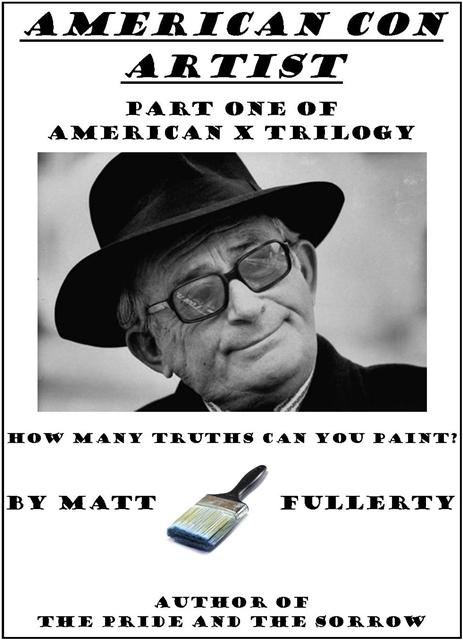cropped.jpg)
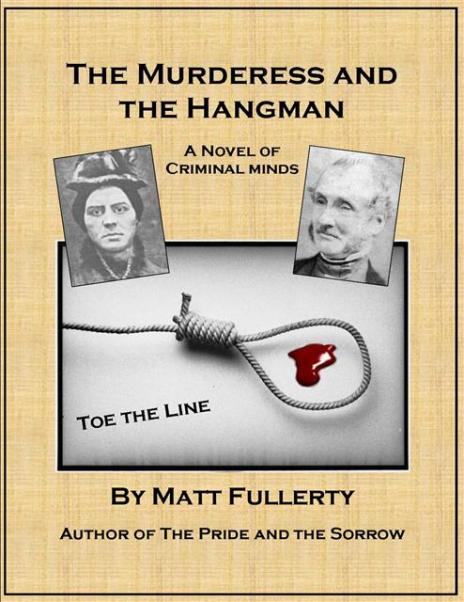.jpg)
cropped.jpg)
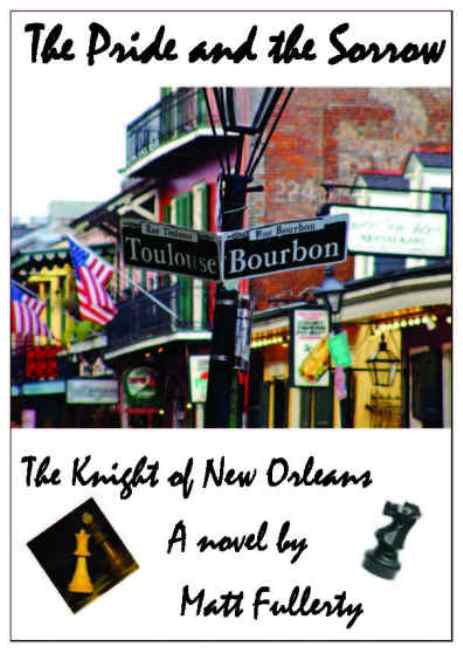2.jpg)
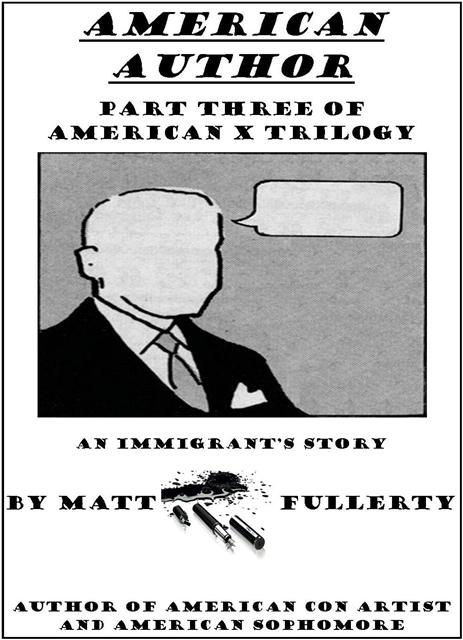Cropped.jpg)
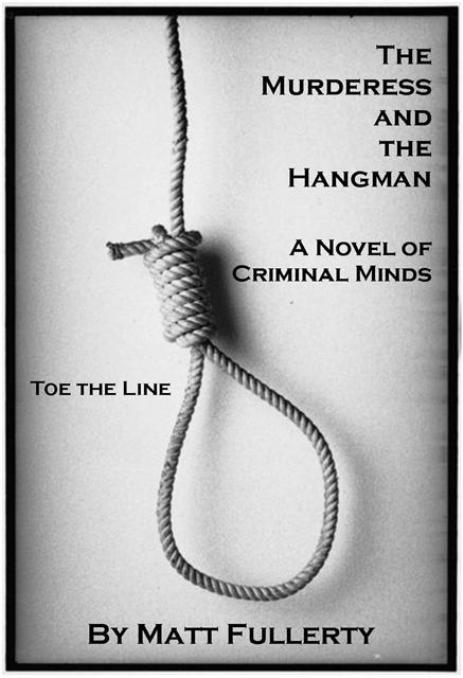cropped.jpg)
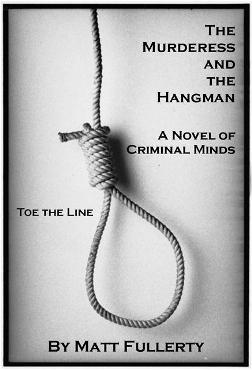4.jpg)






















